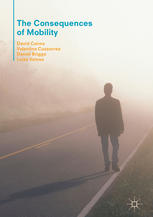

Most ebook files are in PDF format, so you can easily read them using various software such as Foxit Reader or directly on the Google Chrome browser.
Some ebook files are released by publishers in other formats such as .awz, .mobi, .epub, .fb2, etc. You may need to install specific software to read these formats on mobile/PC, such as Calibre.
Please read the tutorial at this link: https://ebookbell.com/faq
We offer FREE conversion to the popular formats you request; however, this may take some time. Therefore, right after payment, please email us, and we will try to provide the service as quickly as possible.
For some exceptional file formats or broken links (if any), please refrain from opening any disputes. Instead, email us first, and we will try to assist within a maximum of 6 hours.
EbookBell Team

5.0
50 reviewsThis book explores various forms of highly skilled mobility in the European Union, assessing the potential for this movement to contribute to individual and societal development. In doing so, the authors illustrate some of the issues arising from the opening up of Europe’s borders, and exposing its education systems and labour markets to international competition. While acknowledging the potentially positive aspects of mobility, they also reveal many of the negative consequences arising from flaws in mobility governance and inequalities in access to opportunities, arguing that when the management of mobility goes ‘wrong’, we are left with a heightened level of precariousness and the reproduction of social inequality.
This discussion will be of interest to those working within Europe’s mobility infrastructure, as well as policymakers in the mobility field and students and scholars from across the social sciences.